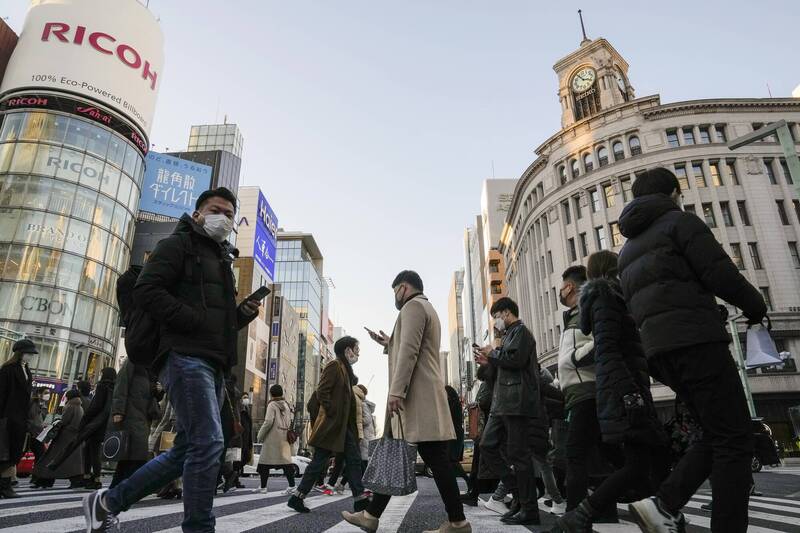Japan's nominal wages increased by 4.8% in December, the largest increase in nearly 26 years.
The picture shows the streets of Ginza, Japan.
(Photo by European News Agency)
[Financial Channel/Comprehensive Report] The nominal wages of Japanese workers grew rapidly in December last year, the largest increase since 1997. The accelerated growth has also sparked speculation that the Bank of Japan (BOJ, Bank of Japan) may be under the leadership of current President Haruhiko Kuroda. After leaving office in April, consider adjusting the direction of monetary policy.
"Bloomberg" reported that the report released by Japan's Ministry of Health, Labor and Welfare on Tuesday (7th) showed that in December 2022, Japan's wage income of the employed population rose by 4.8% compared with the same period of the previous year, mainly due to the large increase in winter bonuses that boosted wages. Far more than the 2.5% growth economists expected.
Please read on...
Real wages rose 0.1%, the first increase since March last year.
The figure also shows that Japan's wage growth is still limited in its ability to provide households with additional spending after accounting for inflation.
With wage developments closely tied to the possibility of a policy change by the Bank of Japan, the unexpected gains could raise bets that the Bank of Japan will adjust or gradually unwind its stimulus program under a new governor.
Tsuyoshi Ueno, a senior economist at NLI Research Institute, said that nominal wage growth is a positive development, not only bonuses, but base wages are also rising. If wage growth continues to be strong, it will be easier for the BOJ to Curtail monetary stimulus.
Japanese Prime Minister Fumio Kishida has repeatedly called on the business community to raise wages faster than prices to boost people's real spending power.
Data show that Japanese household spending in December actually fell by 2.1% compared with the previous (November) month and fell by 1.3% year-on-year, indicating that the impact of price growth on consumption was greater than expected.
Inflation data for December showed price growth at 4 percent, a figure the BOJ expects to cool in coming months, in part due to a fresh round of government measures, including subsidies for household electricity bills.
Ayako Fujita, chief Japan economist at JPMorgan Securities, said Japanese companies are stepping up compensation to workers as prices continue to rise, a clear change in the overall trend.
Fujita expects salary negotiations this spring to result in a 1.5 percent increase in base wages and a 3 percent increase overall.
Grasp the pulse of the economy with one hand I subscribe to Free Finance Youtube channel
Already added friends, thank you
Welcome to 【Free Finance】
feel good
Already liked it, thank you.
related news
